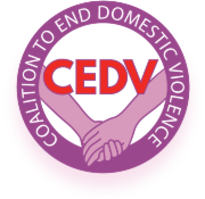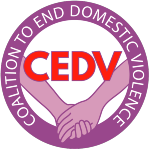PRESS RELEASE
Contact: Rebecca Stewart
Telephone: 513-479-3335
Email: info@EndToDV.org
SB 1106: Coercive Control Bill Will Multiply Prosecutions of Spousal ‘Nagging’ and Sideline Victims of Physical Violence
TALLAHASSEE / February 23, 2022 – SB 1106, which seeks to expand the definition of domestic violence to include “coercive control,” will cause prosecutions of persons who engage in “nagging” to skyrocket. If passed, the bill also will divert limited law enforcement away from victims of physical violence. The Coalition to End Domestic Violence urges Florida lawmakers to reject SB 1106.
SB 1106 defines “coercive control” as (1):
“a pattern of threatening, humiliating, or intimidating actions by one family or household member against another family or household member, which actions are used to harm, punish, or frighten the family or household member and make him or her dependent on the other family or household member by isolating, exploiting, or regulating him or her.
“The term includes, but is not limited to:
(a) Isolating the family or household member from his or her friends or family.
(b) Controlling the amount of money accessible to the family or household member and how he or she spends such money.
(c) Monitoring the family or household member’s activities, communications, or movements.
(d) Frequently engaging in conduct meant to demean, degrade, dehumanize, or embarrass the family or household”
The proposed definition of coercive control is so broad that virtually every adult in the state could be seen as having engaged in such actions. These examples reveal how provisions in the proposed bill could be misused:
- “Monitoring the family or household member’s activities, communications, or movements.” – Has your spouse ever said to you, “Give me a call when you get to Orlando”? Is that behavior “controlling,” or is it a way to show concern for the person’s well-being and safety?
- “Controlling the amount of money accessible to the family or household member and how he or she spends such money.” – If a family member repeatedly bounces checks and overspends the credit card limit, isn’t it reasonable to try to bring the overspending under control?
In one recent case, a woman sought to pay off her pre-marital credit card balance of $30,000 by obtaining a new marital credit card and transferring her prior debts to the new card. Her new husband was forced to suspend the credit card or face bankruptcy. It took him several years to pay off the $30,000 debt. The husband’s necessary efforts to restore the family finances could be seen as falling within the scope of “coercive control.”
According to the U.S. Centers for Disease Control, each year in Florida:
- Coercive control: 2.1 million victims of coercive control, of whom 59% are male (2).
- Domestic violence, sexual assault, or stalking: 837,000 victims (3). A recent example involved Melvin Weller, who was discovered on February 11 lying in a pool of blood in the family home in Palm Springs, FL. His wife has been charged with first-degree murder arising from the 140 stab wounds she inflicted on her husband (4).
SB 1106 betrays the victims of partner violence because it will divert limited law enforcement resources away from the persons who need them the most (5). Lawmakers should vote ‘No’ on SB 1106.
Links:
- https://flsenate.gov/Session/Bill/2022/1106/BillText/c1/PDF Pages 8-9
- https://www.cdc.gov/violenceprevention/pdf/nisvs-statereportbook.pdf Tables 5.8 and 5.10.
- https://www.cdc.gov/violenceprevention/pdf/nisvs-statereportbook.pdf Tables 5.14 and 5.16.
- https://gopoliceblotter.com/florida-woman-stabs-husband-over-140-times-with-meat-cleaver-and-knife/
- https://endtodv.org/camp/coercive-control/


